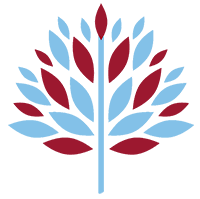About
AddictionLearn about addiction, how to tell if someone is struggling with addiction, and how to help your loved one.
What Is Addiction?
According to the American Society of Addiction Medicine (ASAM):
“Addiction is a primary, chronic disease of brain reward, motivation, memory and related circuitry. Dysfunction in these circuits leads to characteristic biological, psychological, social and spiritual manifestations. This is reflected in an individual pathologically pursuing reward and/or relief by substance use and other behaviors.
Addiction is characterized by inability to consistently abstain, impairment in behavioral control, craving, diminished recognition of significant problems with one’s behaviors and interpersonal relationships, and a dysfunctional emotional response. Like other chronic diseases, addiction often involves cycles of relapse and remission. Without treatment or engagement in recovery activities, addiction is progressive and can result in disability or premature death.”
What is the best way to help someone who suffers from addiction?
This doesn’t mean that families should support the addiction. It’s important to set boundaries for an addicted person so as not to enable their behavior. But families can also do their best to separate the addiction from the person, to understand the disease and its causes, and to learn about and adjust the family dynamic so that it supports every member’s health and well-being.
Addiction is characterized by inability to consistently abstain, impairment in behavioral control, craving, diminished recognition of significant problems with one’s behaviors and interpersonal relationships, and a dysfunctional emotional response. Like other chronic diseases, addiction often involves cycles of relapse and remission. Without treatment or engagement in recovery activities, addiction is progressive and can result in disability or premature death.”
How can I tell if someone may be struggling with addiction?
- An inability to stop using the substance, even when they want to quit.
- Neglecting activities they used to enjoy (time with family and friends, exercise, hobbies, etc.).
- A drop in performance at work or school.
- Attempts to hide their substance use.
- Relationship issues: acting out, lying, or being hostile, particularly when questioned about their substance use.
- Inattention to hygiene or physical appearance.
How can DK Solutions help?
If you are a friend or family member of someone who might be addicted to drugs or alcohol, the first step you can take is to ask your loved one about their substance use habits. Ask your loved one if they want help. Depending on their response, you will know whether you want to contact DK Solutions for assistance in the intervention process.
Where can I find more information about addiction?
The following resources provide evidence-based information about specific aspects of drug and alcohol addiction:
The Substance Abuse and Mental Health Services Administration (SAMHSA)
The National Institute on Drug Abuse (NIDA)
The National Institute on Alcohol Abuse & Alcoholism (NIAAA)
The National Council on Alcoholism & Drug Dependence (NCADD)
Contact Us


DK Solutions Group
Daniel Krasner, CIP
(601) 906-9024
